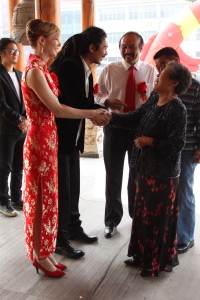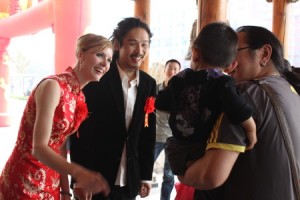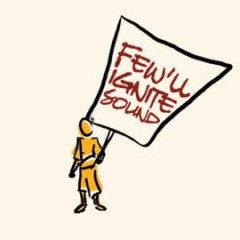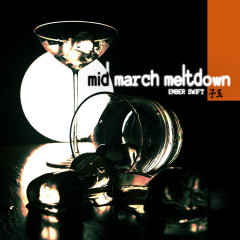Wedding Day Chronicles — Part 4
DRY SMILES
I still haven’t finished telling you about the first (and main) wedding. It alone could be a novel. Where did we leave off? Oh yes, the noodle ceremony. If you haven’t read about it yet, here’s the link to that spectacle.
After the noodle ceremony, we were whisked back downstairs for photo after photo that made our teeth dry from smiling. Every possible combination of family members—Guo Jian’s dad’s side, his mom’s side, just the men, just the women, just the cousins, just the aunts and uncles and parents, just us—that before long I was just allowing Guo Jian to tug me by the elbow if I was supposed to change positions, my face frozen in a photo-ready smile.
Photos over, we were granted “permission” to rest. It was about 8am and I hadn’t slept in 36 hours. I felt dead on my feet. We both went back to the so-called “marriage bed” and were so tired that we would have slept in our clothes if they weren’t so ridiculously fancy. I peeled my dress off by rolling it into itself all the way down to the ankles like it was a collapsing cylinder. I didn’t bother removing the panty hose. Uncomfortable or not, I didn’t have the energy to care. I was asleep within seconds and when we were awakened at 10:00, I hadn’t moved an inch and nor had my hair. Well, my “helmut head” might have something to do with the half-inch layer of hair spray that had been piled into it that morning, however.
(In the earlier chronicles, I forgot to mention that a make-up artist, hair stylist, photographer and videographer arrived at my hotel room at 4am that morning, before the fireworks, bicycles-built-for-two, red carpet or the noodle ceremony! I probably could have written a whole blog about that experience of being dolled up, but I don’t even have the English vocabulary for what she did to my face and hair; I was a passive participant. Whatever it was, it took over an hour and required way too many bobby pins!)
Despite having had a morning ceremony at dawn, Chinese wedding ceremonies truly center around the banquets that are held in the early afternoon. The morning ceremony, though more traditional with fanfare, confetti, a walk down a makeshift aisle, and the bowing and nose-touching, simply wasn’t the main event. A Chinese wedding without a feast is simply not a wedding; it’s just a marriage.
After getting our formal clothes back on, (or peeling them back up!), we were driven to the hotel where we were told to wait outside and greet the guests. It was our job to personally greet each guest with a handshake or a slight bow and, of course, a smile. Of course, seeing as I was a tall, foreign bride, each guest wanted to get a good look at me. With our frozen smiles well rehearsed, we stood there for over an hour, grinning and not complaining. But, now that it’s over, I’d like to state for the record that high heels are ridiculous inventions that only cause excruciating pain while serving no other valuable purpose.
Guo Jian’s parents were there too, outside, but my parents were told at the last minute that they could just rest inside in the banquet area and didn’t need to stand with us. This was hard to explain to them and they were really disappointed. The fault was mine because I had misunderstood the situation having originally told them they’d be out there with us. My in-laws insisted that it would be too tiring for them. When I expressed that they were quite ready to stand with us and didn’t mind, they politely explained that my parents wouldn’t know anyone and it would be strange to have them there—for both the guests and for them. They couldn’t communicate and I’d be too busy to translate, for instance. One more request for clarity brought me the real truth: this was their event, the guest list reflective of this fact, and my parents were their guests, not the hosts; it was not their place.
I tried to explain it as kindly as I could, but I could tell that my parents were still hurt. I apologized for the misunderstanding, but they felt excluded and I felt terrible. From a Western perspective, even though they didn’t organize the affair they were equally important to the event just like the bride and groom are supposed to be equally important. Personally, I think this is a subtle reflection of centuries of gender inequality in China—the wedding being the groom’s family’s responsibility with the bride’s family occupying a lesser role—but this is a much longer conversation. I spent most of the hour wondering how I could make them feel better while grinning my greetings to hundreds of strangers.
There were 455 people who attended that first wedding. I knew about 15 of them, which includes the family members I could identify and a few of Guo Jian’s school friends still living in his home city. I remember thinking that it was like an enormous gig that neither of us had had to promote. Up until that point in time, come to think of it, it was my largest gig in China!
If you’re wondering why I viewed my wedding as a performance, you’ll need to read the next installment of these chronicles. They’ll include spotlights, background music, dry ice, cue cards, choreography, and drum rolls.
And you think I’m kidding.










